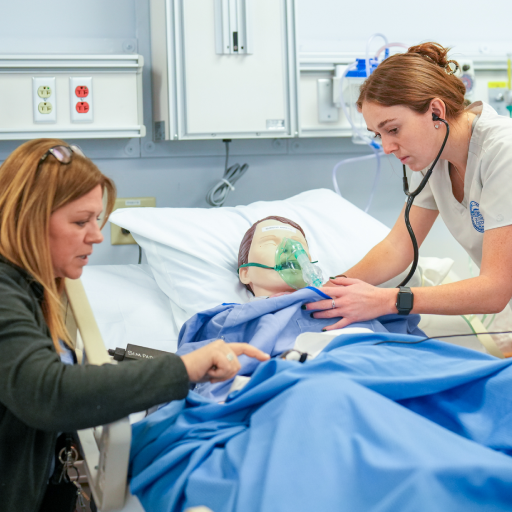Healthcare Administration
Overview
The Healthcare Administration Program is mainly designed for students who anticipate transferring to a baccalaureate degree-granting institution. The course of study is interdisciplinary and includes the college general education curriculum and courses specific to administration and healthcare as well as general liberal arts.
Program Outcomes
At the completion of this program, the student should be able to:
- Outline the ethical considerations that influence healthcare decision making.
- Identify the role and function of a database.
- Differentiate between U.S. healthcare systems and other countries’ systems.
- Identify the role of customer service and a business strategy in the healthcare setting.
- Show knowledge of healthcare finance structures.
- Demonstrate the ability to communicate in a professional manner.
Academic Division of Professional Programs
Healthcare Administration Courses
-
Code
Course
Credits
-
- BUS 101
Introduction to Business
- 3
-
- BUS 202
Principles of Customer Service
- 3
-
- CSA 213
Database Management
- 3
-
- ENG 224
Writing for Professionals
- 3
-
- FIN 202
Health Care Finance
- 3
-
- HCA 104
Health Care Delivery Systems
- 3
-
- HSC 140
Medical Terminology
- 3
-
- IDS 155
Critical Thinking & Writing
- 3
-
- PHL 103
Medical Ethics
- 3
-
- SOC 112
Interpersonal Communication
- 3

View Current Semester Courses>>
Start your education at Quincy College this fall. Our online and blended curriculum makes it easy for you to stay safe and earn your degree!
You might also be interested in...
-

Healthcare Pathways
Quincy College Pathways to Healthcare Professions range from Nursing, Physical Therapist Assistant, Phlebotomy, Radiology, and more.
-

Healthcare Administration: Medical Billing & Coding
The Health Care Administration Program is mainly designed for students who anticipate transferring to a baccalaureate degree-granting institution.
-

Human Services
This program is geared towards students who are passionate about empowering others, enhancing social functioning, and promoting multiculturalism.
-

Courses
View the current course schedule. Quincy College offers the programs you want, the flexibility you need and the price that makes it all possible.
